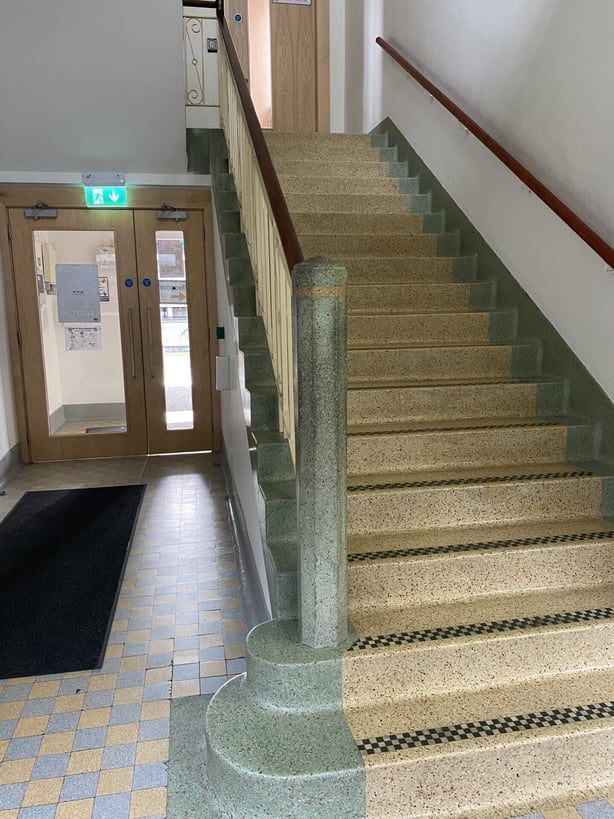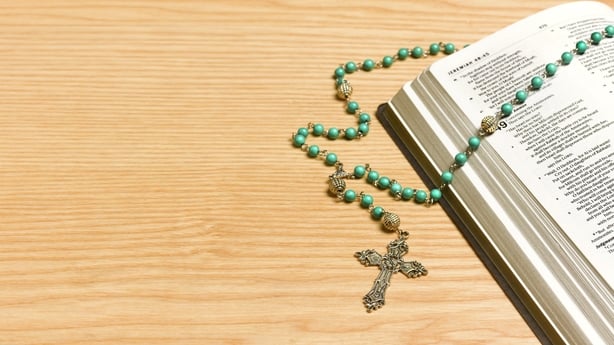Earlier this year I was invited back to the convent primary school in Limerick city that I attended as a child to chat to 6th class pupils there about my career in journalism.
It felt strange to wander its familiar corridors, with their indestructible 1950s terrazzo floors and polished banisters, and even stranger to sit in my old classroom which felt both familiar and alien at the same time.
Some things haven’t changed at all, but others have. Salesian Primary School Fernbank is still all-girls, it is still Catholic, but the ethnic make-up of its pupils bears no relation at all to what it was in my day - it is much richer.
The girls were full of curiosity and questions for me, but I was just as curious about them. So we traded information. I told them about my life as a journalist and they told me of the many different languages they speak at home, and of the many countries that their parents come from.
When it comes to its religious and ethnic make-up Fernbank is typical of so many primary schools now. This Catholic school estimates that around 65% of its girls come from families that are Catholic. That's a proportion that matches almost exactly the picture revealed by the latest data from the Central Statistics Office.
On Thursday the CSO published a detailed breakdown of religious affiliation in Ireland now. Those figures are of huge relevance to the ongoing debate around how our schools need to change to reflect the spiritual and ethical values of today’s children and families.
They reveal the growing mismatch between family religious beliefs versus those of the schools that in most cases parents have no choice but to send their children to.

The vast majority of primary schools here continue to be religious-run, and 90% of them have a Catholic ethos. Census 2022 tells us that 69% of Irish people continue to identify as Catholic, but the gap is much bigger in the age categories that relate to our current primary school going population, and its bigger still when you look to the school population of the very near future.
Last year, the parents of one quarter of children under the age of four ticked either the 'no religion’ box or ticked no box at all when asked about their child's religious affiliation, if any.
That means that very soon, one-in-four children attending primary school here are likely to be of no religion.
When it comes to the parents of the future the picture is even more telling.
Young people aged 25-29 were the least likely among all age groups to state that they were Catholic. Just around half of them - 53% - ticked that box. They are also the age group with the highest proportion of people with no religion at all. 26% of this age group have no religion. A further 7% chose not to tick any box at all when they were asked about faith.
These figures stand in strong contrast to data gathered in the 2016 and 2011 censuses. Taken together they show a strong trend away from Catholicism. Other religions are growing, but from small bases. After Catholicism the second biggest category by far is that of ‘no religion’.
But despite the policy of successive recent governments in favour of divestment and change, our school system is showing little if any sign of change, outwardly at least.
Salesian Primary was one of a number of schools that participated in the latest Government and Catholic church backed initiative aimed at achieving change.
The aim of the recent reconfiguration process was to persuade some Catholic school communities, in areas such as Limerick city where there are too many Catholic and not enough multi-denominational schools, to switch patronage. The process relied on a majority of parents in a community agreeing to any change, and not surprisingly, in Limerick and elsewhere, it failed.
Out of 63 Catholic school communities consulted in areas across the country, just two agreed to transfer.
Nine Catholic schools were consulted in Limerick and all of them said no.
"The communities did not want reconfiguration. There was a massive majority that said no," says one person who was involved in the process in Limerick.
While the voices of Irish Catholic parents dominated the debate locally, many non-Catholic migrant parents too were not keen on change. "They love their children’s schools, they feel happy to be included, and they don’t want to rock any boats," this person told RTÉ news.
This was reflected elsewhere too. A report on the process in a north Dublin suburb shows that many parents feared that in divesting their school from Catholic to multi-denominational status the very essence of their school - all that they valued about it - might be lost too.

It is likely that very many of the Catholic parents who argued so strongly against change in the various consultation processes that were held across the country are what is sometimes disparagingly referred to as ‘bouncy castle Catholics’.
These are the parents who do not really practice Catholicism but who want their children to be baptised and make their first communion and confirmation for largely social as opposed to religious reasons. But in many societies communal coming-of-age rites such as these are valued for reasons beyond the strictly spiritual.
Sr Bridget O’Connell is Provincial Leader of the Salesian sisters in Ireland. Of the primary school at Fernbank, she told RTÉ News "it’s an inclusive school and everybody is welcome there".
"It has a value system that people are happy with, parents know that for their children it’s a good place for them to be".
When it comes to primary schools that is what parents want the most for their child, for them to be in "a good place" where they can make friends and be happy.
And rightly or wrongly, parents involved in the Government’s last attempt at reconfiguration interpreted the proposed changes as posing a threat to that.
The Department of Education has now gone back to the drawing board. Acknowledging failings last month Secretary General Bernie McNally told an education conference: "This is a really sensitive area and we do have to tread cautiously."
"The learning from the pilot includes the need to answer questions in a very objective way, because sometimes misinformation can thrive," she said.
The Department intends to publish ‘learnings’ from its failed reconfiguration process by the end of this year, and it plans to begin anew with a survey of parents in certain areas.
The principal of Fernbank, Claire Rea, thinks that change is inevitable. Despite the fact that her school community has so recently rejected change she says "I think it will happen over time".
Pointing to the growing shortage of priests she says "eventually communities are going to have to take responsibility for religious formation".

In the meantime, schools like Fernbank are doing the best they can.
"We are Catholic and religion is part of our school ethos, but we are very open as well," she says.
"We haven’t got enough staff to take non-Catholic children out (during religion classes), but we talk to the parents when they first come to the school, we welcome them to bring in activities for their children to do, and the teacher will set up an independent activity for any child who needs it."
Claire Rea explains that when a mass is held involving the older children (the younger children do not attend mass) which is just "a few times" in the school year "we organise play-based fun activities for the non-Catholic children".
The school is striving as best it can - within the constraints of its ethos - to meet the needs of all.
But the census data is clear. Change is needed. Children who are not Catholic should not be obliged to listen to Catholic prayers every day in school, or to have to sit in a classroom while others receive Catholic faith formation. There are virtually no voices in education here who openly disagree with that. But how do we ensure that all that is so good and so valuable about the education that pupils like the girls I met in my old classroom at Fernbank are getting is kept?
This includes the fact that children from such a huge variety of different backgrounds are educated together and play together as classmates and friends. The long-term societal importance of that is incalculable. If we swap this for a system that results in the segregation of non-Catholic children from their Catholic neighbours, or of children from ethnic minority backgrounds from white Irish children, then something very valuable will be lost.
Way back in the 1830’s the original national school system was designed to prevent just that. Its founding vision - subsequently thwarted by the churches - was "a system of education from which should be banished even the suspicion of proselytism, and which, admitting children of all religious persuasions, should not interfere with the peculiar tenets of any."
The Department of Education knows that that is a vision that a significant and growing minority of Irish children are in need of again today.







